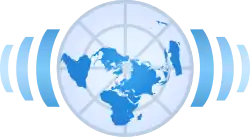Portal:Poland
Welcome to the Poland Portal — Witaj w Portalu o Polsce
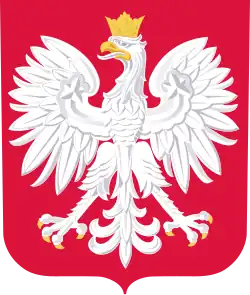
Poland is a country in Central Europe, bordered by Germany to the west, the Czech Republic to the southwest, Slovakia to the south, Ukraine and Belarus to the east, Lithuania to the northeast, and the Baltic Sea and Russia's Kaliningrad Oblast to the north. It is an ancient nation whose history as a state began near the middle of the 10th century. Its golden age occurred in the 16th century when it united with the Grand Duchy of Lithuania to form the Polish–Lithuanian Commonwealth. During the following century, the strengthening of the gentry and internal disorders weakened the nation. In a series of agreements in the late 18th century, Russia, Prussia and Austria partitioned Poland amongst themselves. It regained independence as the Second Polish Republic in the aftermath of World War I only to lose it again when it was occupied by Nazi Germany and the Soviet Union in World War II. The nation lost over six million citizens in the war, following which it emerged as the communist Polish People's Republic under strong Soviet influence within the Eastern Bloc. A westward border shift followed by forced population transfers after the war turned a once multiethnic country into a mostly homogeneous nation state. Labor turmoil in 1980 led to the formation of the independent trade union called Solidarity (Solidarność) that over time became a political force which by 1990 had swept parliamentary elections and the presidency. A shock therapy program during the early 1990s enabled the country to transform its economy into one of the most robust in Central Europe. With its transformation to a democratic, market-oriented country completed, Poland joined NATO in 1999 and the European Union in 2004, but has experienced a constitutional crisis and democratic backsliding since 2015.
From Polish history –
Selected biography –
Selected location –

Did you know –

- ... that the Brzeg Castle (courtyard pictured) in Silesia houses Poland's only preserved medieval hunting bow?
- ... that the statue of Roman Dmowski, the "father of Polish nationalism", has proven to be one of the most controversial monuments in Warsaw?
- ... that Ryszard Siwiec, protesting the Warsaw Pact invasion of Czechoslovakia, was the first political protester to commit suicide by self-immolation in Central and Eastern Europe?
- ... that there were around 525 Filipinos in Poland as of September 2012, and that most of them resided in the country temporarily?
Poland now
Recent events
.jpg)
- On 12 July, Polish tennis player Iga Świątek (pictured) won the Wimbledon Championships women's singles.
- On 25 June, Sławosz Uznański-Wiśniewski, a crew member of Axiom Mission 4, became the second Polish astronaut to reach outer space, following Mirosław Hermaszewski's spaceflight in 1978.
- On 15 June, the AF Corse auto racing team including Polish driver Robert Kubica won the 93rd 24 Hours of Le Mans.
- On 1 June, Karol Nawrocki (endorsed by Law and Justice), narrowly won the run-off vote in the presidential election.
- On 18 May, Warsaw mayor, Rafał Trzaskowski (Civic Coalition) narrowly led the first round of the presidential election.
Ongoing
Holidays and observances in August 2025
(statutory public holidays in bold)
.jpg)
- Assumption Day and Polish Armed Forces Day (military aircraft pictured), 15 April
- Solidarity and Freedom Day, 31 August
Selected image –
.jpg)
Subcategories

You can help!
|
|
Topics
Related portals
| Belarus | Czech Republic | Germany | Lithuania | Russia | Slovakia | Ukraine |
| Europe | Catholicism | Communism | European Union |
Associated Wikimedia
The following Wikimedia Foundation sister projects provide more on this subject:
-
Commons
Free media repository -
Wikibooks
Free textbooks and manuals -
Wikidata
Free knowledge base -
Wikinews
Free-content news -
Wikiquote
Collection of quotations -
Wikisource
Free-content library -
Wikiversity
Free learning tools -
Wikivoyage
Free travel guide -
Wiktionary
Dictionary and thesaurus
Wikipedias in the languages of Poland
| Kaszëbskô Wikipedijô Kashubian Wikipedia |
Polska Wikipedia Polish Wikipedia |
Ślůnsko Wikipedyjo Silesian Wikipedia |
Wymysiöeryś Wikipedyj Vilamovian Wikipedia Incubator |
Беларуская • Česky • Deutsch • Հայերեն • Lietuvių • Romani • Русиньскый • Русский • Slovenčina • Українська • ייִדיש
-
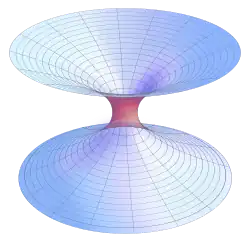 List of all portals
List of all portals -

-

-

-
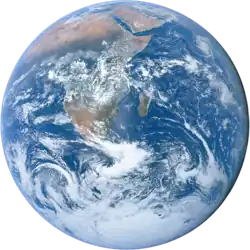
-

-
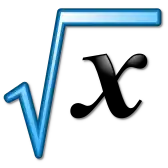
-

-

-

-
 Random portal
Random portal -
 WikiProject Portals
WikiProject Portals





